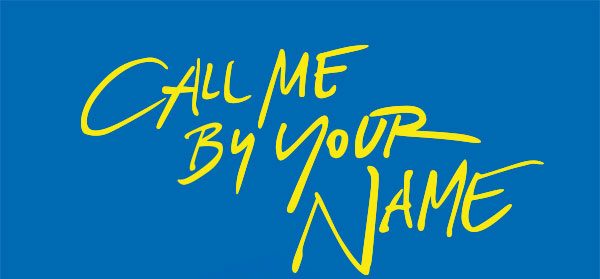Time makes us sentimental. Perhaps, in the end, it is because of time that we suffer.
My first interaction with Call Me By Your Name was when I saw the movie trailer back in 2017. I remember thinking “ooh, is this gay?” followed by “wait, that guy’s a lot older than the twink, right?”
(I paraphrase, as I was unfamiliar with the word “twink” at age 15.)
I’ve had this book/movie on my radar for some time, and I’ve heard mixed reviews on both. But I always knew I wanted to read/watch it eventually, as it’s a classic piece of queer lit.
First, let’s start with the book.
I finished CMBYN in two reading sessions, although that was no easy feat. Aciman has a deep, layered writing style that would feel pretentious if handled by a less talented author. However, the better paragraphs are overshadowed by Elio saying “apricock” or… the peach scene. Don’t ask me about that part yet, I don’t want to talk about it.
Ultimately, the book is a lovely bildungsroman. Elio’s story is vividly alive in the splendor, immaturity, fear, and worship of first love. I’m giving the age gap in his and Oliver’s relationship the side-eye, but I understand how it feeds into Elio’s romance and the intensity of his bond with Oliver.
I found it interesting how CMBYN became a love story under a unique lens, with acceptance over what can never be and few tendrils of regret. It was well-written, but I didn’t find myself becoming wildly invested in the romance being delivered.
In the end, my confusion over this book came from the alternating viewpoints of Elio and Oliver’s relationship. Is it about the intensity of first love or about two soulmates who aren’t destined to be together, Cathy and Heathcliff style? Reading CMBYN as a straightforward love story seems to undermine it, such as viewing The Phantom of the Opera merely as a romance between Christine and the Phantom. But I digress.
This was a book where I knew I’d want to watch the movie before reviewing it, strange as that sounds. As I mentioned before, I’ve had the movie in my periphery for quite some time, and I was looking forward to seeing it. Even if I completely dislike a book, I find enjoyment in watching its movie and comparing details from one form to the other.
The older I get, the less bad I feel saying this: I liked the movie more than the book. Luca Guadagnino’s gorgeous cinematography perfectly captures Andre Aciman’s writing, and the developing connection between Elio and Oliver is portrayed with a painful depth of emotion.
While I had fun with the pre-relationship portion of the movie, the second act with the two of them indulging their secret was emotionally satisfying. But the final act, the slow dissolution of the bond made… now that got me. The way Oliver looked at Elio on their last night, that goodbye at the train station, the best credits scene I’ve watched… who let me feel this much over this kid?
The soundtrack to this movie is beyond beautiful. It’s still stuck in my head.
Obviously, this movie isn’t perfect. The weird sex stuff from the book endures, and I still raise my eyebrow at Elio’s dad telling his 17-year-old son that his dalliance with the 24-year-old student was the truest depths of feeling and romance. But my God, Chalamet and Hammer’s performances are so wonderfully done.
The movie takes a more direct and unsubtle axe to Elio and Oliver in the end, with Oliver explicitly saying his father would send him away for being gay, and the support Elio’s parents show him is rare. It’s an interesting, literal angle of the closing, as if the two of them would’ve had a shot at a genuine relationship otherwise. In the book, they both seem to accept their expiration date at the end of the summer and move on with their lives, despite acknowledging how much they meant to one another.
Rumors have risen and fallen about a sequel to this movie. If we are getting one, it could come out as many as ten years after the first’s release date. But… do we need one?
(Side note: I know a “sequel” to the book exists, and I’m not sure if I’ll read it. I don’t think I liked the book enough to do so, and I’ve heard it’s a lot less Elio/Oliver focused than readers hoped. So it probably wouldn’t serve as the basis for the hypothetical movie sequel.)
Whether a story about true love or not, Call Me By Your Name is, at the end of the day, a coming of age narrative. Would a sequel reuniting Elio and Oliver undermine the poignancy of that final scene and the intangibility of first love? Or would it seal the gap between the past and the future by exploring the possibility of seizing love without worrying what the world thinks?
In a way (ignoring Find Me), the bittersweet half-open ending of the movie is a solid closing point, even accounting for the final part of the book set years in the future. Will Elio and Oliver find each other again? Or has their relationship only served as Elio’s rite of passage into adulthood? Leaving this interpretation up to the viewer is ultimately the strongest move. The story has been told and completed – now what? Well, just like Elio, where you turn next is your own choice. Accept the pain, move onward, and don’t be afraid to fall. Just pull yourself back up, however long it takes, and keep marching.
“And we’ll want to call it envy, because to call it regret would break our hearts.”


